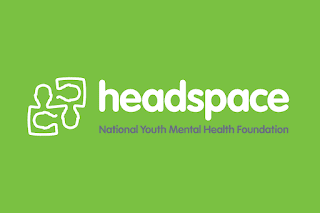#ACEL Day Two | Kristen Douglas National Manager, Schools, headspace - School Leaders As Ecosystem Engineers - Leaning In With Intention And Attention
Kristen will explore the contemporary approaches to workforce well-being and considerations for future leaders focusing on:
• How to socially, emotionally, and relationally lead staff
• Building trust and connection
• Feeding your culture with intention
• Careful conversation not corrosive conversations, and
• Getting back to deep listening.
“Are you a thermostat or a thermometer? One changes the temperature but the other merely measures it”. (Planetshakers 2021)
Link to website: https://headspace.org.au/
Supporting humans through adversity.
Headlines for today:
- Schools are complex ecosystems and micro-leadership behaviours play a powerful role
- It takes a village to raise a child and communities start in schools
- It is critical to connect people for regulation, safety and balance
- Leaders must be able to lead individuals and entire communities - these are different skills
- Being in balance is the very core of individual and community function
Example of wolves being ecosystem engineers
Levels of organisation
Bruce Perry - ‘Disconnection and loneliness in our society are playing a major role in the increased anxiety, sleep problems, substance use, and depression we’re seeing.
https://www.carrolup.info/on-relationships-and-connectedness-bruce-perry/
Make time for reflection and connection opportunities
Culture and climate - “You need to feed the goat”, you should never take the culture and climate for granted.
Why good leaders make you feel safe | Simon Sinek
Schedule your priorities, don’t prioritise your schedule/
Don’t manage your team, manage your attention.
Simon Sinek - The path versus the trees
“There's plenty of path, there's plenty of snow. It's the same thing for you. If you focus on the obstacles, all you will see is obstacles. If you focus on the path through the trees, all you will see is path through the trees.”
We need to focus not on the obstacles but focus on the path through the obstacles.
Resilience versus distress tolerance. You don’t build psychological resilience by feeling good all the time.
- Community
- Population
- Individuals
- Improving School Climate
- Maximising social capital
- Slow down in order to speed up
- Spaces to stop and reflect
- Reflective practice - diarise it as a leader.
- The power of yarning
- Deep listening
Bruce Perry - ‘Disconnection and loneliness in our society are playing a major role in the increased anxiety, sleep problems, substance use, and depression we’re seeing.
https://www.carrolup.info/on-relationships-and-connectedness-bruce-perry/
Make time for reflection and connection opportunities
Culture and climate - “You need to feed the goat”, you should never take the culture and climate for granted.
Why good leaders make you feel safe | Simon Sinek
Schedule your priorities, don’t prioritise your schedule/
Don’t manage your team, manage your attention.
Simon Sinek - The path versus the trees
“There's plenty of path, there's plenty of snow. It's the same thing for you. If you focus on the obstacles, all you will see is obstacles. If you focus on the path through the trees, all you will see is path through the trees.”
We need to focus not on the obstacles but focus on the path through the obstacles.
Resilience versus distress tolerance. You don’t build psychological resilience by feeling good all the time.
If you are having a distressing thought - tell yourself “CTRL, ALT, DELETE” Recommended Reading - ‘What happened to you?’ by Dr Bruce Perry https://www.amazon.com/What-Happened-You-Understanding-Resilience/dp/1250223180 Three calls to action:
|



Comments
Post a Comment